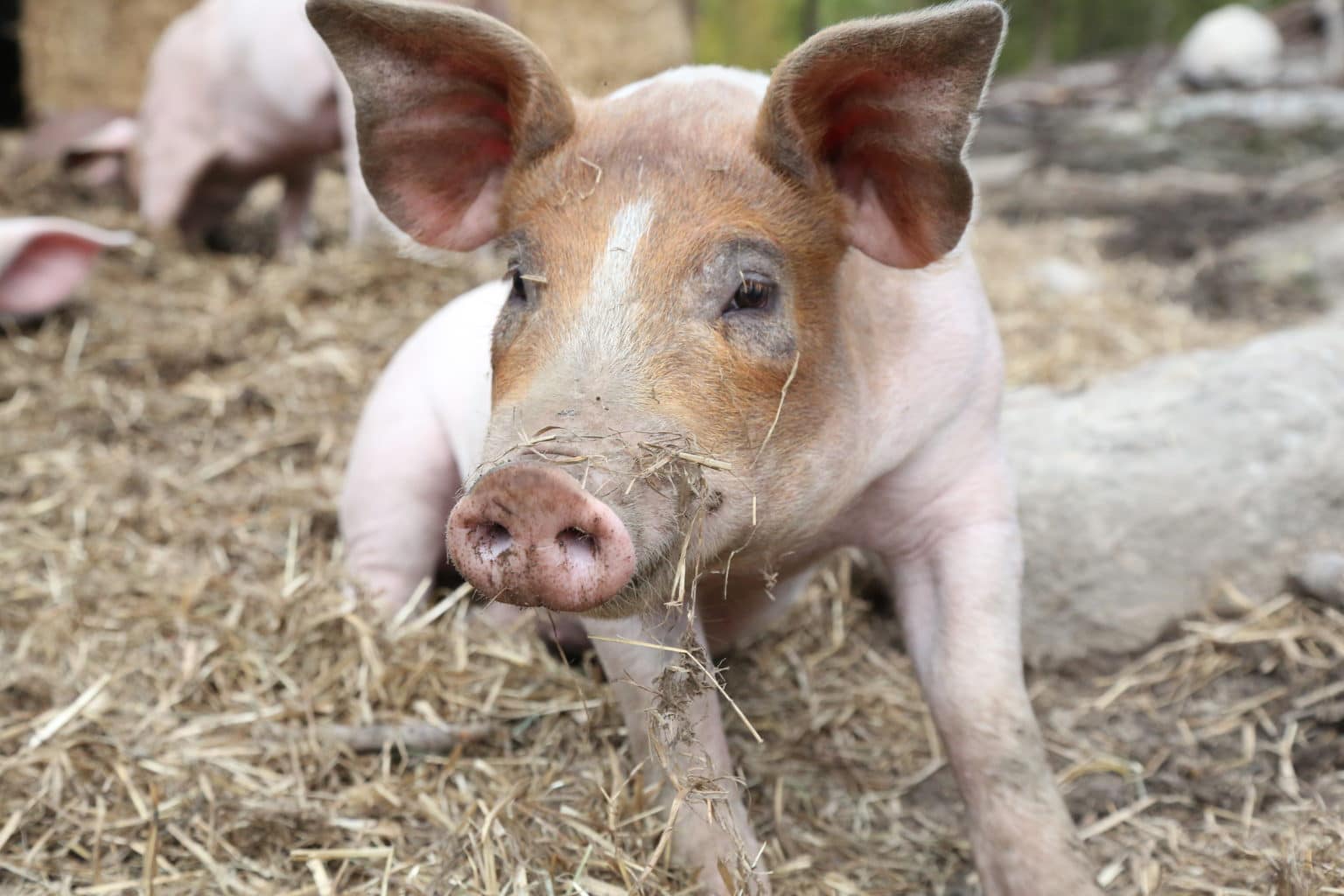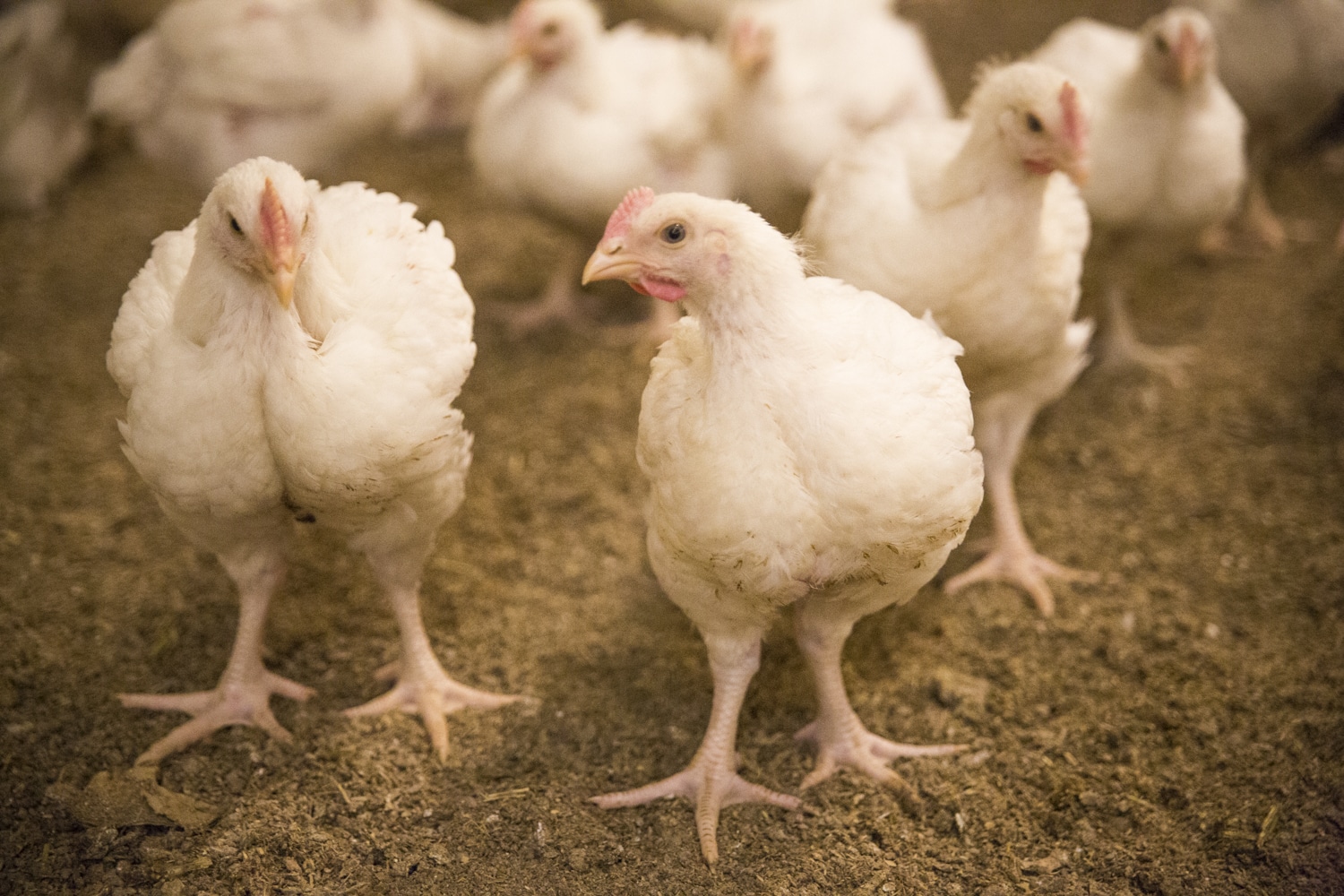The Norwegian Animal Protection Alliance has a long-term strategy to help large numbers of animals avoid severe suffering. Our achievements over time include improved conditions for broiler chickens, laying hens and pigs.

Since 2001 the Norwegian Animal Protection Alliance has worked to achieve concrete improvements for animals every year. We prioritize practices that affect large numbers of animals and cause severe suffering.
Norwegian Sovereign Wealth Fund Introduces Animal Welfare Expectations
In early 2025, Norway’s Government Pension Fund Global, one of the world’s largest sovereign wealth funds, took a groundbreaking step by introducing expectations for animal welfare among the companies it invests in. This marks a major advancement in responsible investment, aligning corporate behavior with international animal welfare standards. The Norwegian Animal Protection Alliance has long advocated for this change and welcomes the fund’s commitment to integrating animal welfare considerations into its ownership dialogue. This shift follows the 2023 OECD recommendations and reflects the growing recognition of animal welfare as both an ethical and financial concern.
A slower-growing chicken breed with more space and daylight
Rema 1000 is one of Norway’s three largest retailers. In 2022 their production company Norsk Kylling lowered the stocking density for all their chickens to 30 kg/m2. In addition all birds were given daily access to daylight. The improvements meet with the European Chicken Commitment criteria and follow close co-operation with the Norwegian Animal Protection Alliance.
In 2015 we helped Rema 1000 switch from the fast growing broiler chicken Ross 308 to a slower growing breed. Veterinarians from the Norwegian Animal Protection Alliance helped them implement less intensive chicken breeds. Simultaneously we made sure environmental enrichment was introduced in all the chicken houses, such as perches and litter substrate.
Three years later REMA 1000's transition to a slower growing broiler chicken was completed. As a consequence they use three million fewer individuals annually to produce the same meat volume as before.
Food, clothing and cosmetics with better animal welfare
Every year we reach out to more than 50 companies with a request to make a commitment to animal welfare. Many are willing to change, given time and practical advice from our experienced staff.
A brand committed not to sell cosmetics tested on animals, real fur, or wool made with mulesing will get a green light in our popular consumer guide app. So will meat, eggs and dairy products certified with the Animal Welfare Label or produced with criteria at a similar level. In addition our popular mobile app includes a full overview of all vegetarian and vegan substitutes for animal foods for sale in all supermarket chains throughout the country.
Brands that do not want to take animal ethical considerations into account get a red light. So far we have listed more than 800 brands that now take animal ethical considerations into account.
Help the animals
Do you want to give the animals a better life?
Help the animals who need it the most
Gå videreBan on fur farming
The last fur farms in Norway shut down in February 2022, after two decades of intensive political lobbying from the Norwegian Animal Protection Alliance.
The work for a ban began in 2001. By 2008, the authorities agreed to prohibit live breeding exhibitions. The Norwegian Labour Party included a ban on fur farming in their party program in 2013. Following this, the government removed state subsidies for fur farming in 2015. A decision to ban fur farming by 2025 was made by the government in 2018. The Parliament passed the Fur Farming Prohibition Act the following year, with the ban set to take effect in February 2025.
Caged hens phased out
Following a campaign by the Norwegian Animal Protection Alliance, major retailer REMA 1000 committed in 2010 to stop selling shelled eggs from caged hens. Although it took some time, Norway's largest supermarket chain, Norgesgruppen, eventually followed suit in 2017 and went cage-free. Together, these two retailers dominate the Norwegian grocery market. As a result, the use of cages as a production system in the Norwegian egg industry has been largely phased out.
The Animal Protection Label launched
In 2018, we were proud to launch Norway's first animal welfare label for food. By choosing a product with the Animal Protection Label, "Dyrevernmerket," consumers can feel confident that the animals have had more space, a healthier body, and more opportunities for activity. This label ensures higher standards of animal welfare and helps consumers make informed, compassionate choices.
Animal welfare mandatory in ethical trade
After three years of effort by the Norwegian Animal Protection Alliance, animal welfare has become a mandatory consideration for members of Ethical Trade Norway. This network includes businesses, organizations, and public entities, ranging from some of Norway’s largest food companies and clothing stores to the municipality of Oslo, universities, and non-profits. This development marks a significant breakthrough in the Norwegian business sector's commitment to animal welfare.
A new Animal Welfare Act
When the new Animal Welfare Act was adopted in 2009, it included several provisions proposed by the Norwegian Animal Protection Alliance. Our lawyer was a member of the working group that drafted the act.
The Animal Welfare Act states that all animals have inherent value, regardless of their usefulness to humans. Sexual abuse of animals is explicitly prohibited, and killing animals purely for entertainment is forbidden. Furthermore, animals have the right not only to be protected from suffering but also to experience positive well-being.
Ban on animal testing of marine toxins
In 2011, all routine animal testing of marine algal toxins was banned in Norway, followed by a similar decision in EU. These procedures were considered to be some of the most painful animal experiments being performed. A biologist from the Norwegian Animal Protection Alliance worked intensively for the ban with international scientists and animal welfare organisations.
Scalding of live chickens in slaughterhouses stopped
Until 2003, around 1,000 chickens each year risked being submerged alive in scalding hot water to remove their feathers. However, in 2002, the Norwegian Animal Protection Alliance exposed this cruel practice. As a result, Norway's three largest poultry slaughterhouses were rebuilt, significantly improving animal welfare standards in the industry.
Serum production in live lab animals stopped
Previously, serum was routinely produced in the bodies of live rodents, causing them severe pain due to increased body fluid. However, after our biologists documented this suffering in 2002, the Research Authority decided to strictly limit this practice. Now, serum production takes place almost exclusively in test tubes, significantly reducing the need for live animals and improving ethical standards in research.
Ban on tooth clipping of piglets
Cutting piglets' incisor teeth was once a common practice on Norwegian pig farms. However, in 2002, following pressure from the Norwegian Animal Protection Alliance, the Norwegian Animal Health Authority agreed to ban this cruel practice. As a result, piglets in Norway are now spared this painful procedure. Transitioning to more humane practices has been a significant step forward for animal welfare in the country.
Ban on castration of pigs without anaesthetics
Previously, approximately 650,000 Norwegian piglets each year had their testicles removed without any anesthetics. Nevertheless, in 2002, after extensive documentation, persistent pressure, and strategic political lobbying from the Norwegian Animal Protection Alliance, the Parliament ultimately made a groundbreaking decision. As a result, Norway became the first country in the world to ban piglet castration without the use of local anesthetics and pain relief. Consequently, this decision represented a significant advancement in animal welfare practices, setting a new global standard for other nations to follow.
The Norwegian Government Pension Fund must consider animal welfare
The Norwegian Government Pension Fund is estimated to be the world's fifth-largest investor in international industrial agriculture. In 2021, the Norwegian Animal Protection Alliance successfully advocated for the Storting (Norwegian Parliament) to ensure that animal welfare in these investments is monitored by the Council on Ethics. This marks the first time the Storting has considered animal welfare in relation to the Norwegian Government Pension Fund. We continue to work toward the goal of the Fund ceasing its investments in industrial agriculture.
